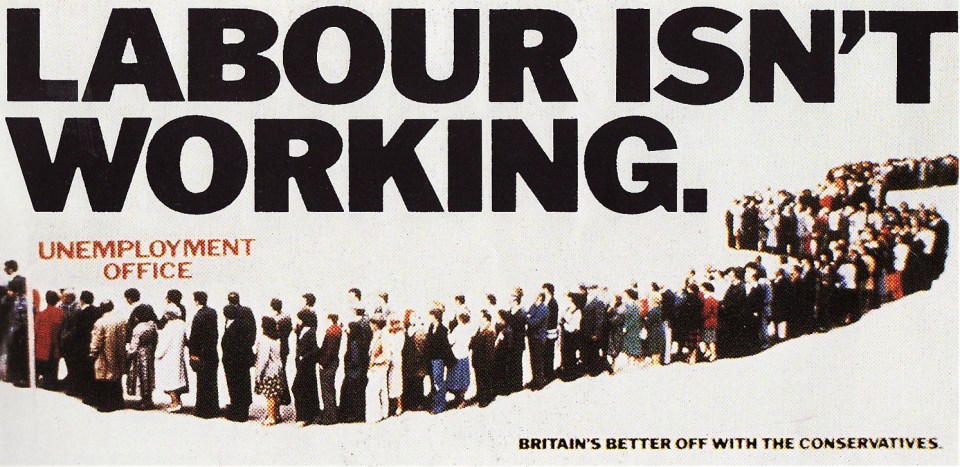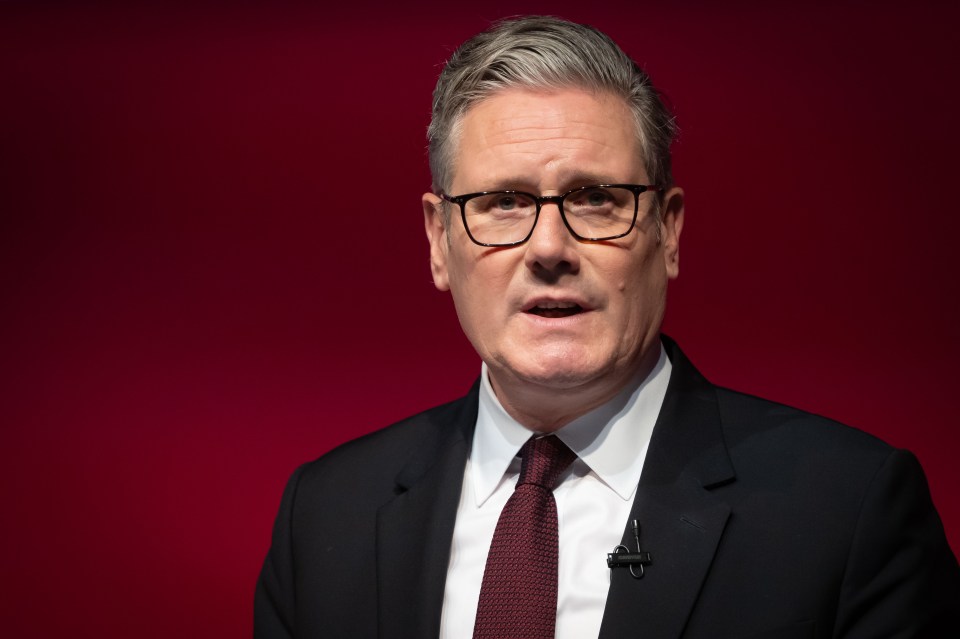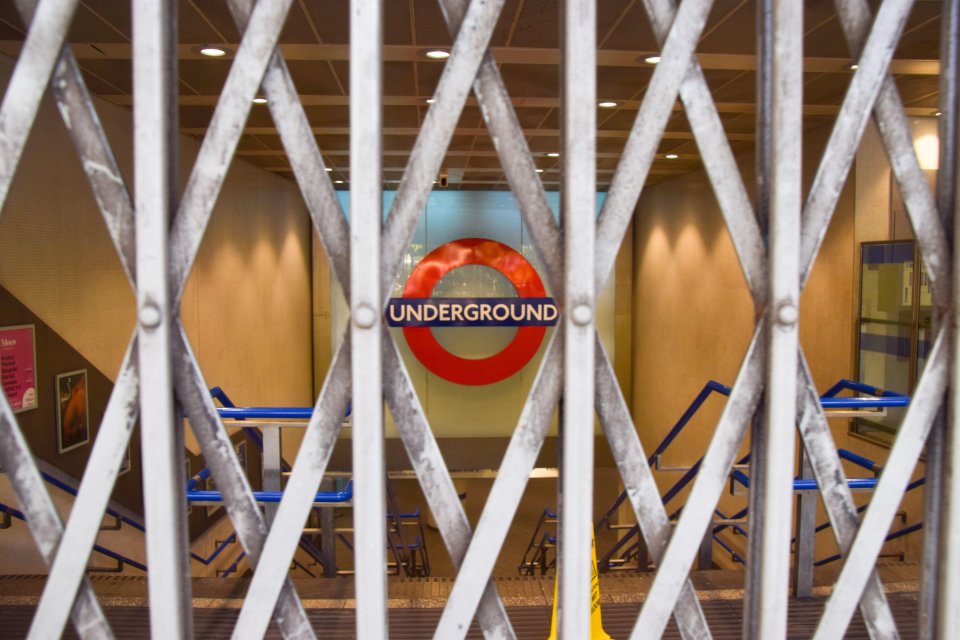Bone idle Britain is addicted to strikes and benefits – the workshy will turn us into basket case France
IT was perhaps the most famous poster in election history. “Labour Isn’t Working,” proclaimed its simple slogan above a photo of a long, snaking queue outside an unemployment office.
The image helped Margaret Thatcher’s Tories to win a decisive victory in 1979.
That poster could be revived today as the beleaguered Labour Prime Minister, Sir Keir Starmer, seems to be trapped in a kind of doom loop created by his party’s epic mismanagement of the economy.
Growth is anaemic, the tax burden colossal. Just like in the late 70s, Britain is gripped by rising debt, inflation and unemployment, as well as increasing militancy in the public sector workforce, where recent generous pay settlements have fuelled a mood of greedy irresponsibility.
Only yesterday the distinguished business leader Lord Stuart Rose, the former head of Marks & Spencer, warned that Starmer and his bumbling Chancellor Rachel Reeves had dragged Britain “to the edge of crisis.”
In a bleak analysis, Lord Rose argued that because “there is no growth in the economy,” neither wealth nor jobs are being created.
The parallel with the 1970s is at its most stark in the hostility to hard work. Fifty years ago Britain became known as “the sick man of Europe” because of its addiction to strikes, with an astonishing 29million working days lost in 1979 alone.
Modern Britain has yet to plumb those depths, though the pig-headed unions are trying to go in that direction, as shown by the current miserable strike on the London Underground, which has paralysed the capital this week.
What makes this strike so ridiculous is that the Tube drivers are extremely well-paid, typically earning around £72,000-a-year, and enjoy excellent job security, pensions, hours and holidays. Yet they act like they are oppressed members of the proletariat.
The same is true of the resident doctors who went on strike last month in support of an outrageous 35 per cent pay claim.
These grotesque demands are part of a wider culture of self-serving entitlement that is destroying Britain’s work ethic, reducing productivity and weakening the dynamism of business.
That destructive spirit can be seen in the recent surge of sick leave in the national workforce, a phenomenon caused not by harsher conditions but by more indulgent management, and the fashion for treating normal emotions as mental health problems.
Mental-health crisis
Yesterday a study by the Chartered Institute of Personnel and Development revealed that employees are now taking an average of nearly two weeks off sick every year.
Only two years ago absenteeism stood at an average of 7.8 days a year. Now that figure has risen to 9.4 days a year, with the mental-health crisis the key driving force.
All too predictably, the record of the public sector is much worse than the private sector. That is not because work on the state payroll is tougher. Just the opposite is true.
The heavily unionised culture of public employment, with its emphasis on workplace rights and victimhood, promotes weak management and a lack of accountability.
The rise in absenteeism is mirrored by the growth in welfare dependency where ever increasing numbers of people think that the state owes them a living. Social security is no longer just a temporary safety net but has become a comfortable lifestyle choice.
There are now 6.5million adults of working age who are claiming out-of-work benefits, while some forms of incapacity payments have become a sort of subsidy for early retirement.
As Lord Rose puts it, “We have arrived in a situation in Britain today where there is effectively no obligation to work, absolutely none.”
In a recent newspaper interview, one claimant called Clare Russell gave an insight into the mentality of some of the worst freeloaders.
Labour likes to boast that it is the party of ‘working people’. Now it should live up to that description.
Ten years ago she gave up work at the age of 46 and since then has lived off the disability benefits she receives for a bad back, as well as a substantial rental income from some property, plus a carer’s allowance to look after her mother who lives 30 miles away.
In her sickening interview, she said that she has “a lovely life, thanks to the great British taxpayer.”
Just to heighten the outrage she added, “when I am at the gym, I watch young people scuttle past the window on the treadmill of work and I must admit to feeling smug.”
The disappearance of the work ethic is neither morally defensible nor financially affordable.
The disability benefits bill is expected to reach £100billion by 2030 while the overall cost of welfare is forecast to go up from £210billion a decade ago to £380billion by 2030.
The welfare leviathan is tracking us ever deeper into debt and towards national bankruptcy.
In the depths of its current political crisis, France — which has an even more lavish benefits system than Britain — shows what can happen when the cost of welfare spirals out of control.
We were the nation of the industrial revolution. We must revive that kind of drive and determination. This should be an absolute priority for the new Labour cabinet.
Reform of welfare and the workplace is not an option, it is a necessity.
Labour likes to boast that it is the party of “working people”. Now it should live up to that description.










